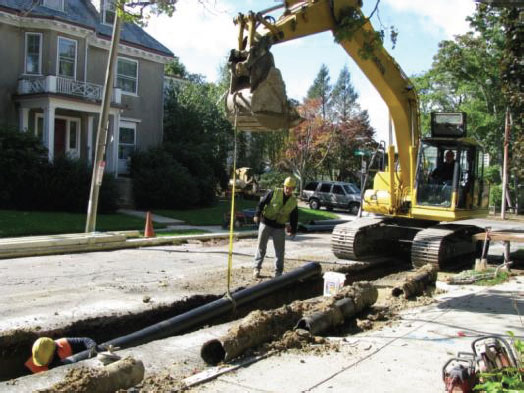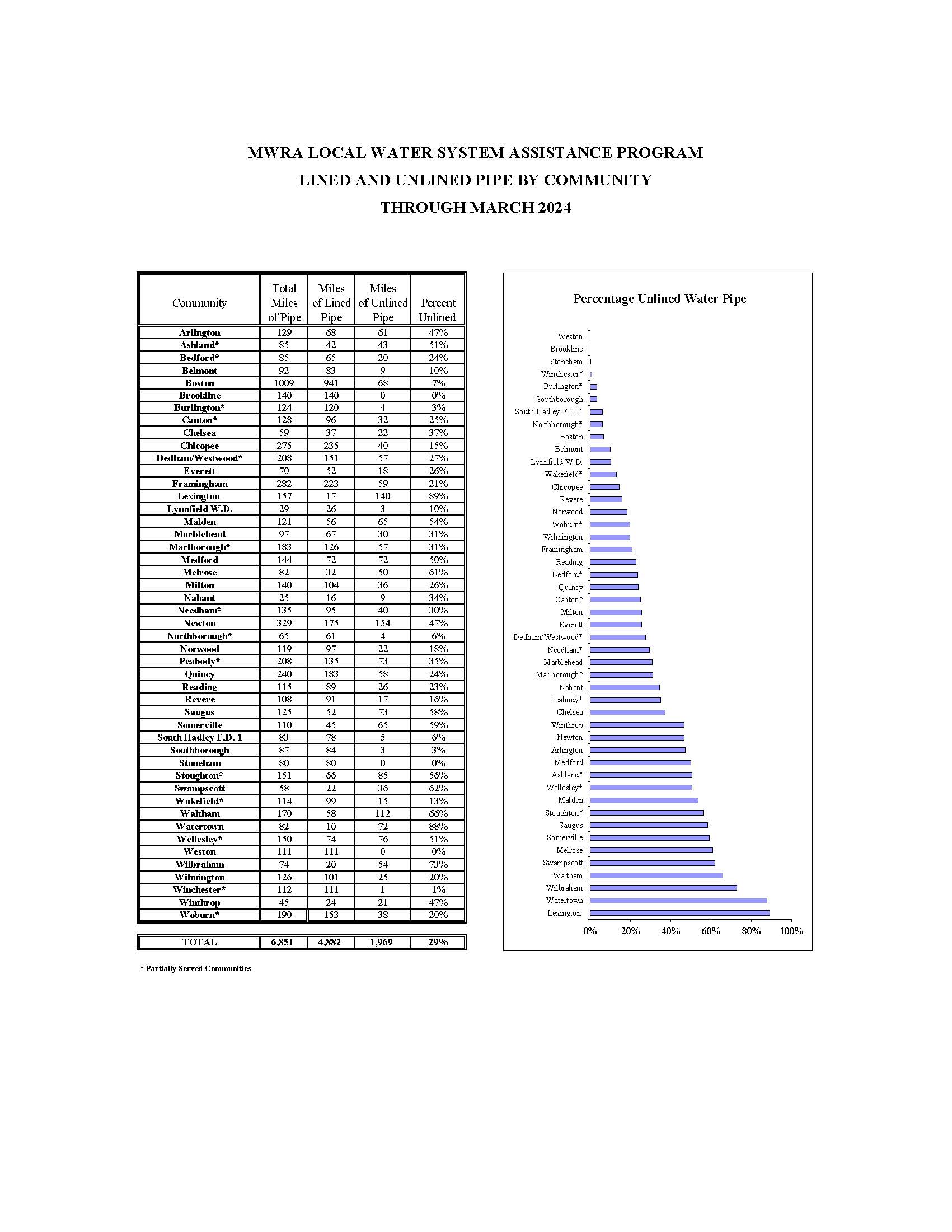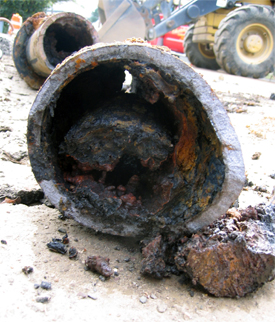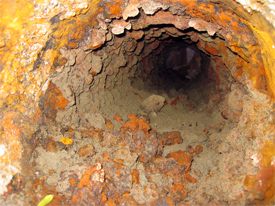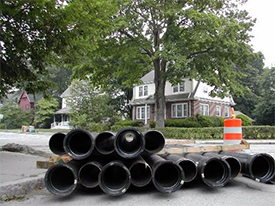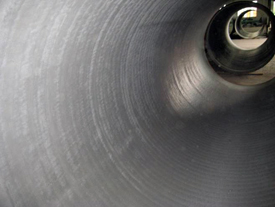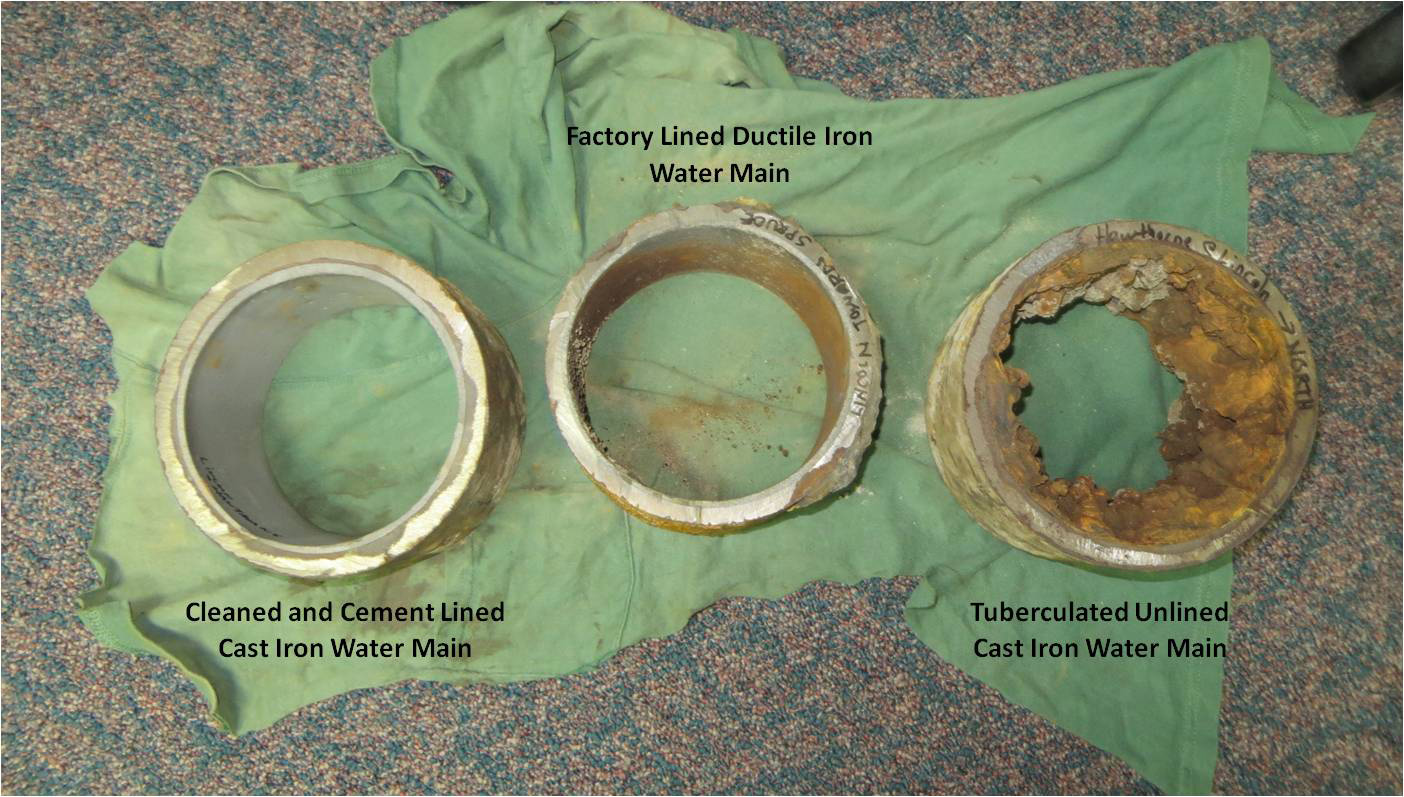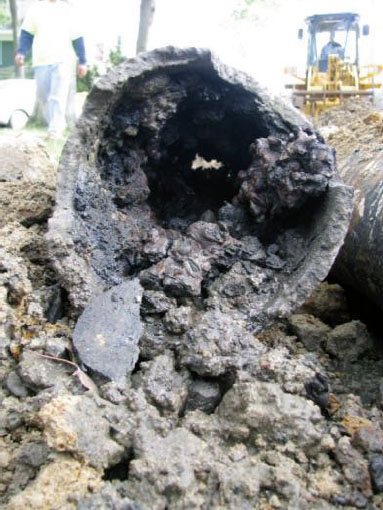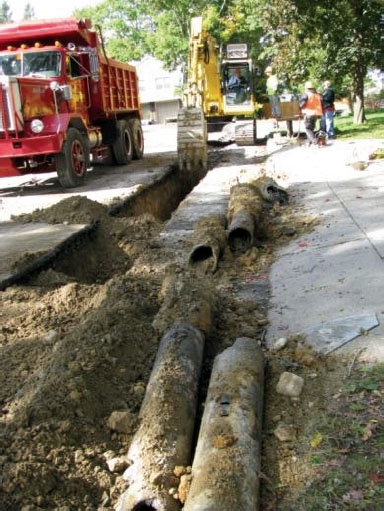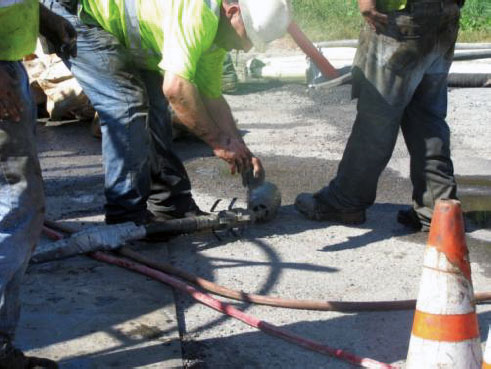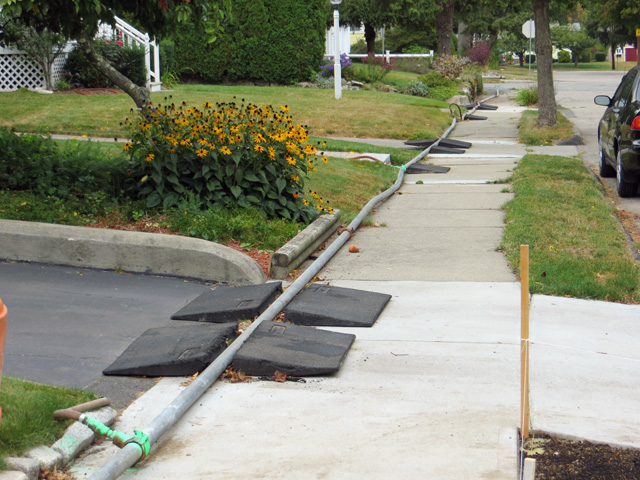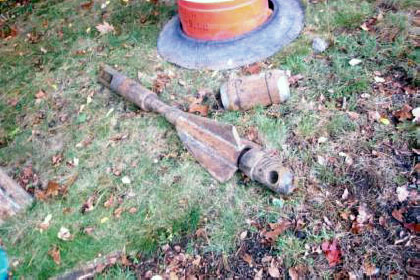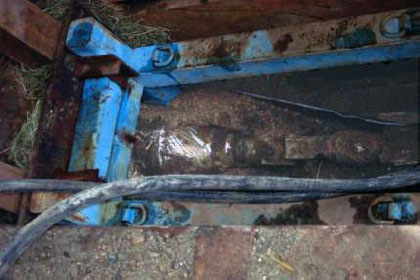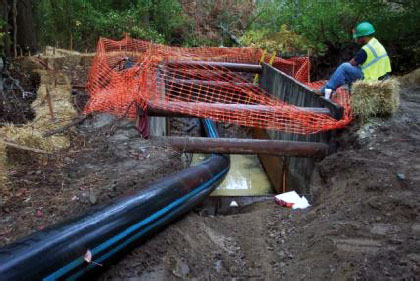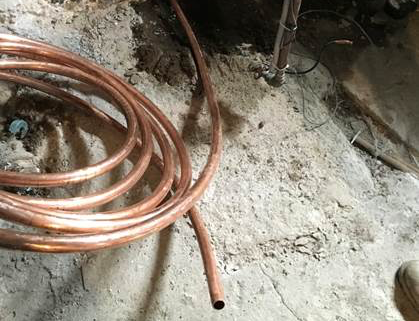| Home |
| Water System |
| Sewer System |
| Harbor and Bay |
| School Program |
| About MWRA |
| Doing Business with MWRA |
| Contact MWRA |
Local Water System Assistance Program (LWSAP)
For Member Communities
Massachusetts Water Resources Authority
|
MWRA’s Local Water System Assistance Program (LWSAP) provides a total of $725 million in interest-free loans to member water communities to perform water system improvement projects. Community loans are repaid to MWRA over a 10-year period. The program's goal is to improve local water system pipeline conditions to help maintain high water quality from MWRA's treatment plant through local pipelines to customers' taps. There have been three Phases of MWRA Community Water Loans:
- Phase 3 Water Loan Program from FY18 through FY30 at $293 million;
- Phase 2 Water Loan Program from FY11 through FY25 at $210 million; and,
- Phase 1 Water Loan Program completed in FY13 at $222 million.
Allocation of Loan Funds to Member Communities
The LWSAP budget is allocated among 47 member water communities (44 metro-Boston/metro-west water communities and three Chicopee Valley Aqueduct water communities). Please see the links to the tables “LWSAP Allocation and Funding Utilization by Community” which are updated periodically. For communities that are partially served by MWRA, their allocation is prorated based on the percent use of MWRA water. Distribution of Program funds is spread over a multi-year period as noted above. Each community’s annual allocation is restricted to the larger of (1) 10 percent of their total allocation or (2) $500,000. If not utilized in a given year, annual allocations roll-over and accumulate up to the community’s total allocation. The annual allocation restrictions are intended to limit MWRA loan distributions. The Phase 2 LWSAP Loan funds will sunset at the end of FY25.
Eligible Project Costs
The LWSAP Program Guidelines and Application Form are available here (see link at right).
Applications for financial assistance are due to MWRA at least one month prior to the quarterly distribution date. Binding commitments to provide financial assistance for local water projects will be issued by the MWRA in the form of a financial assistance and loan agreement subject to the availability of funds. The loan agreement will incorporate an opinion from the community's bond counsel stating that the loan is a valid general obligation of the municipality. Financial assistance will be distributed quarterly, on or about: February 15, May 15, August 15, and November 15. The financial assistance award will be transferred into a Massachusetts Municipal Depository Trust (MMDT) account established by the community. All financial assistance funds, together with the earned interest from the MMDT account, will be applied to the cost of approved community water system rehabilitation projects. The interest-free loan will be repaid to the MWRA over a ten-year period, beginning one year after the original quarterly funding distribution date.
Local projects that rehabilitate water distribution systems, improve water quality, and/or enhance system efficiency are eligible for MWRA financial assistance. All project costs incurred on or after January 1, 2010 will be considered for eligibility in an application under the LWSAP. Communities may utilize 100 percent of their LWSAP funding allocation on water quality based projects, as listed below:
- Replacement or abandonment of unlined water mains;
- Sliplining of unlined water mains;
- Water main cleaning and lining of unlined water mains;
- Replacement or abandonment of asbestos cement pipe or other water pipeline work performed for water quality purposes;
- Identification and replacement of water service connections constructed of lead pipe, lead-lined pipe, brass pipe or other services in poor condition;
- Identification and replacement of water service connections with lead gooseneck connections and galvanized (or other material) service line pipe connected via a lead gooseneck;
- Looping of dead-end water mains;
- Water valve and hydrant installation or replacement;
- Water storage tank installation, rehabilitation or replacement; and,
- Engineering planning, design and construction services associated with the above items.
To provide communities with some flexibility with regard to water system rehabilitation needs, additional community projects (known as "tier two" projects) that target water system efficiency are also eligible for LWSAP loan funding. To emphasize the Program's goal of improving water quality, there shall be a direct correlation between the maximum amount of LWSAP funds that may be used for tier two projects and the percentage of lined water main miles in each community. Specifically, the amount of LWSAP funds that may be used for tier two projects shall be restricted to the percent of lined water main miles times the community's total LWSAP allocation. Tier two eligible projects include:
- Water meter purchase and installation;
- Water meter reading system purchase and installation;
- Water booster pump station installation and/or upgrades;
- GIS mapping and system modeling; and,
- Engineering planning, design and construction services associated with the above items.
Program Benefits
MWRA’s goal in providing financial assistance to member communities is to improve local water systems to help maintain high quality water as it passes from MWRA’s facilities through local pipelines to customers’ taps. Continued improvement of local water systems is a critical element of MWRA’s Integrated Water Supply Improvement Program. Older water mains, particularly those constructed of unlined cast-iron pipe, need to be replaced or cleaned and lined to prevent tuberculation (rust build-up), loss of disinfectant residual and potential bacteria growth. To date, about 26 percent of local distribution systems remain unlined; representing a regional need of about $1.4 billion for future water main rehabilitation. The LWSAP continues the efforts of MWRA’s $30 million pilot distribution system rehabilitation program (FY98-99) and the $222 million Local Pipeline Assistance Program (FY00-13) that have previously provided water system loans to communities.
|
||
To ensure pipeline improvements, MWRA annually rehabilitates portions of the regional network of larger pipelines that distribute water to member community systems and provides financial assistance for local water system improvements. At present, the regional water system consists of about 74% lined water pipe. Since 1998, MWRA has provided local communities $593 million in interest-free loans to fund 620 miles (about 9%) of community water main cleaning and lining or water main replacement projects.
|
|||||
|
|||||
|
|||||
Participating Water Communties
MWRA has a total of 52 water communities (with Dedham/Westwood Water District counted as one), of which 47 are allocated loan funds under the Local Water System Assistance Program. The five communities ineligible for LWSAP loan funds are special cases, as follows: Clinton, Leominster (emergency only), and Worcester (emergency only), that receive untreated water from the Wachusett Reservoir; Cambridge, that receives water on an emergency-only basis; and Lynn, that receives water for the GE plant only.
Phase 1 - Local Pipeline Assistance Program is Complete
MWRA's Phase 1-Local Pipeline Assistance Program ("LPAP") was completed in June, 2013, with the distribution of $222 million in interest-free loans to MWRA water communities to perform local water main rehabilitation projects.
LPAP Allocation and Funding Utilization by Community
(PDF) - Completed June 2013
Sample Projects that have Received Local Water System Funding
Many local projects that receive MWRA Local Water System Financial Assistance funding include a combination of water, sewer, drain and roadway reconstruction. For these multifaceted projects, water system loan funding is prorated based on the percentage of eligible water system work. A typical pipeline project is shown below.
Typical Pipeline Replacement Project - West Roxbury, MA |
||
Many local projects that receive MWRA Local Water System Financial Assistance funding utilize water pipeline cleaning and lining construction technology to cost effectively rehabilitate older cast iron pipe to a condition that will provide decades of additional service life. This construction method does not require an open excavation along the entire length of the pipeline. Instead, small excavation pits are used to access the existing pipe. A typical pipeline rehabilitation cleaning and lining project with temporary water piping is shown below.
Pipeline Rehabilitation Cleaning and Lining - Norwood |
||
Some local projects that receive MWRA Local Water System Financial Assistance funding have employed trenchless construction technology. For example, a project in Milton, MA used pipe bursting and new pipe pull-through to avoid open trench construction impacts to a wetland area.
Milton Pipe Bursting Project |
||
Some local projects that receive MWRA Local Water System Financial Assistance funding have included the replacement of lead water service lines. In March, 2016, the MWRA Board of Directors approved an enhancement to the Local Water System Assistance Program to provide up to $100 million in 10-year interest-free loans to communities soley for efforts to fully replace lead service lines. See information under the Lead Service Line Replacement Loan Program.
Lead Service Replacement Projects |
|
Many local projects that receive MWRA Local Water System Financial Assistance funding have improved water quality issues associated with local water storage tanks. In Canton, MA, the 0.7 million gallon Tolman Street standpipe was demolished and replaced with a new tank and the 0.6 million gallon Ponkapoag standpipe was rehabilitated, as shown below.
Water Quality Improvement at Local Water Storage Tanks |
|||
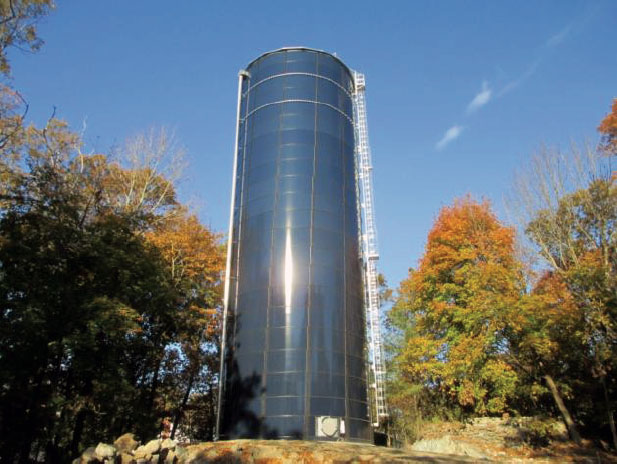 |
 |
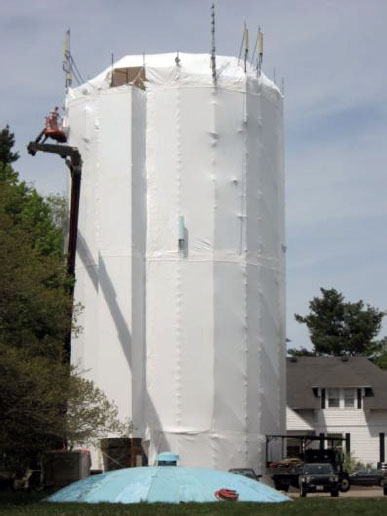 |
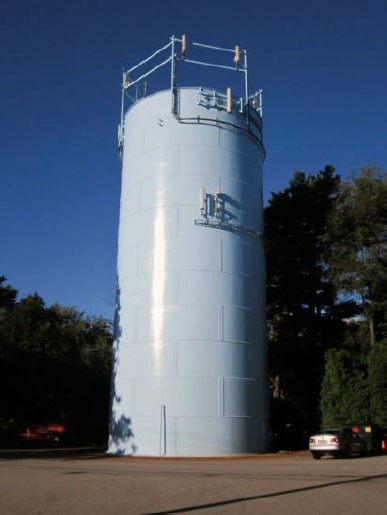 |
PDF files on this page require Adobe Acrobat Reader® (free download).
Updated September 14, 2022
